Heraclitus’s name for the irreducible flux of the cosmos, writes James Hillman1, is fire, “a metaphor for the shifting meanings of all truth…
“Therefore, the verbal account, or logos, of the world is also fire. Truth, wisdom, knowledge, reality—none can stand apart from this fire that allows no objective fixity.”
“By cosmic rule,” as Heraclitus put it, “all things change.”2 Hillman goes on to emphasize the importance of reading Heraclitean fire as metaphor, “a psychological intensity that penetrates through all literalisms.” Speech is fire; we are always speaking metaphorically, because the Word is both itself and something else (to which it gestures or, perhaps, obscures). Hence the deep sense of fragment number eighty-one3:
“I am as I am not”
There is something eminently useful, dare I say essential about using both terms, fire and metaphor, to understand Heraclitus—to understand the mind—today. The word fire generally invokes phenomena orbiting the event of combustion, heat, discharge, et cetera: something other than the word’s own constitution (re: language). Metaphor, on the other hand, describes language, first.
No surprise that in the 2,500 years since the fragments were written, the fundamental relationality of fire has, well, changed. Yet fire, as Heraclitus had it, is almost impossibly alive as metaphor in the words of David Mutschlecner at the dawn of the third millennium:
“The inherent similarity in dissimilars is that power whereupon creation acts, and that light whereby the mind understands creation… In metaphor we find the active self-revelation of being, for metaphor is the relationality through which things reveal themselves, and it is through metaphor’s revelation that the mind knows itself.”
One of the more common ways to revel, these days, is to go to a concert. The disorder that underlies revelry (see: rebel, revolt) seems integral to experiencing the fullness of creative power that leads to self-revelation. It’s as if the word-thing bond that makes semantic sense possible also inhibits our experience of a multidirectional, holistic sense: fire sense. Going to a show involves breaking away from various daily norms. At its most powerful, performance, like metaphor, breaks bonds in order to reveal a bondedness of far greater potency:
“Metaphor is not only a pairing of images, a smart overlapping of forms, it is rather a first cry that rises through the overlapping, for the first cry is like the curve of light, already turned toward unity. The communal cry is sexual and is unifying and is transcendent. You are swept up in the power of metaphor when, after a long day indoors, you go outside to see the vault of stars across the arc of darkness, and your vision soars upward to become one with the stars.”4
And this, my friends, is why Thom Yorke and Laurie Anderson are aliens.5 The “communal cry” so channeled unbinds our personhood; we are flung, where we are, into deeper heaven among the dwarves and giants and angels.
*
Tobias Bank is captain of the dreamboat. When he walks into the bookshop, people working on their laptops spontaneously realize that life is precious and they’d rather be playing the guitar, or adopting a cat, or admiring snowflakes. He performs live and on musical recordings with some of the best bands around: Sound of Honey, Third Ward, Frail Talk, Spinster, and Menyuska. He is the one drumming in this stunning video. He gives the warmest of hugs.
I hope you enjoy this month’s conversation, it’s a loop that would make your shoelaces proud.
—Joe
In translation, of course; ibid.
But who’s counting?
“Something becomes itself only in relationship with something else. A purely isolate being, excoriated of all relationship, is as close to nonbeing as we can get, for we have no thought of such a being. The first recognition of something—that it exists—is already a recognition rooted in relationship, because we are implicitly saying that this existing thing exists in a manner similar to other existing things. The object in question—whether an object of thought or a physical object—shares in the concept of existence. It is known, even at the implicit level of metaphysics, as being-in-relation. Everything in the universe inheres in everything else; every- thing has a share in the existential plenum.” (“Metaphor,” Poetic Faith, The Lune, 2019)
The recording will supply you with the missing context :)






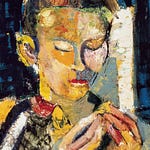

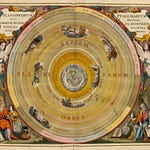
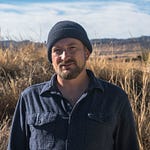
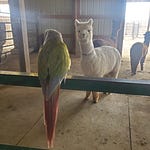
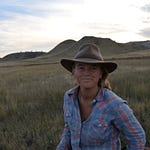

This Changes Everything | Tobias Bank